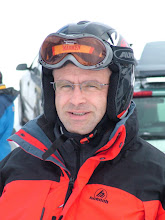To serve as “fulcrum point for educational and societal change”, schools should become learning organizations which foster relationship, collaboration, and learning process whereby teachers, students, parents, principles as well as community members interact and construct meaningful knowledge.
I agree that schools as learning organizations have to reflect the way people live and learn. It seems obvious that learning is a natural human disposition. Children as well as adults are programmed for learning genetically. Furthermore, there are many research results showing that people learn purposefully and integrating new knowledge into their prior experience. Therefore, it seems that learning in schools will be successful while following the pattern of natural learning.
It seems that systems thinking may help us to perceive our schools as organizations where we are interacting with other players of the system while contributing to build a better human society. This way of thinking may be very rewarding, but surely it will demand a host of skills which have not been so far necessarily regarded as part of our action. We have not only to focus our educational work on the process of learning but also on the human development of our students, as well as we have to develop good communication skills in a complex system. In order to achieve such goals, we have to pay more attention to develop interactively our role as teachers, and also we have to learn to allocate differently our resources, especially our time. Systems thinking and the other tools suggested by P. Senge may give us some support.
In a school dedicated to build community and serve in the local community, as Catholic school is supposed to be, the idea of P. Senge may represent a supportive conceptual framework for us. His framework may also help us to articulate our vision and mission as Catholic educators in the 21st century. Indeed, focus on whole person development and collaboration should be at the heart of our educational creed. Parents, for instance, have to be involved in school, as they are the primer educators of their children. Senge’s ideas about schools as learning organizations, however, may help us to criticize our mental models in order to see more properly the complexity of our role as Catholic educators in the 21st century school organization.


I am most struck by your comment, "In order to achieve such goals, we have to pay more attention to develop interactively our role as teachers, and also we have to learn to allocate differently our resources, especially our time." The concept of developing interactively and allocating time differently are ones I agree with. At the same time, I'm curious about your specific ideas. How do you think we need to differenlty allocate time? How would you structure it to acheive the goals set out by Senge, you, or your school?
ReplyDeleteI was also struck by your comment that, "it will demand a host of skills which have not been so far necessarily regarded as part of our action." Given a wide spectrum of teacher experience, age, and preparation, what do you think should be the focus of a professional development program in secondary schools? If there were one or two areas you'd most want to challenge, support, or enhance teacher performance, where would it be and why?
Your comments assist me in continuing to think of our Catholic schools as systems within a system. Each school has a culture which has developed and is affected by the dynamics of system. And, culturally, there is an inertia which must be overcome to shift the metaphorical iceberg of school culture. We seem to be comfortable with the most apparent systems that face us within the school, whether it be the budgeting process, or the matrix derived to schedule students and teachers for the year, but we are not always comfortable with the pieces of the system that are difficult, such as morale within the community, or situating our current reality within the history of our individual institution. Lastly, you make me wonder how our own thoughts, our mental models, are themselves systems which affect how we interact and react in education. Thanks for making me think!
ReplyDeleteFirst off I would like to say that I was enthralled by your mind mapping videos. They were so interesting to watch and make so much sense as far as how our brain gathers and connects information. Thank you for those videos! It fits perfectly with the fact that we need to really consider how our students really learn when we are planning our lessons. You said it in your blog that it seems very obvious that we model our classrooms around the natural curiosity that children have. That they essentially learn things that they are motivated to learn about. It seems obvious but I wonder if our classrooms are really set up to spark the natural curiosity of our children. I think it seems obvious but that is a theory that teachers and schools often disregard as it becomes more important to "cover" a certain amount of material before the end of the year comes. I would love to hear of your experiences of education that often and properly utilize that natural human curiosity that our students have.
ReplyDelete